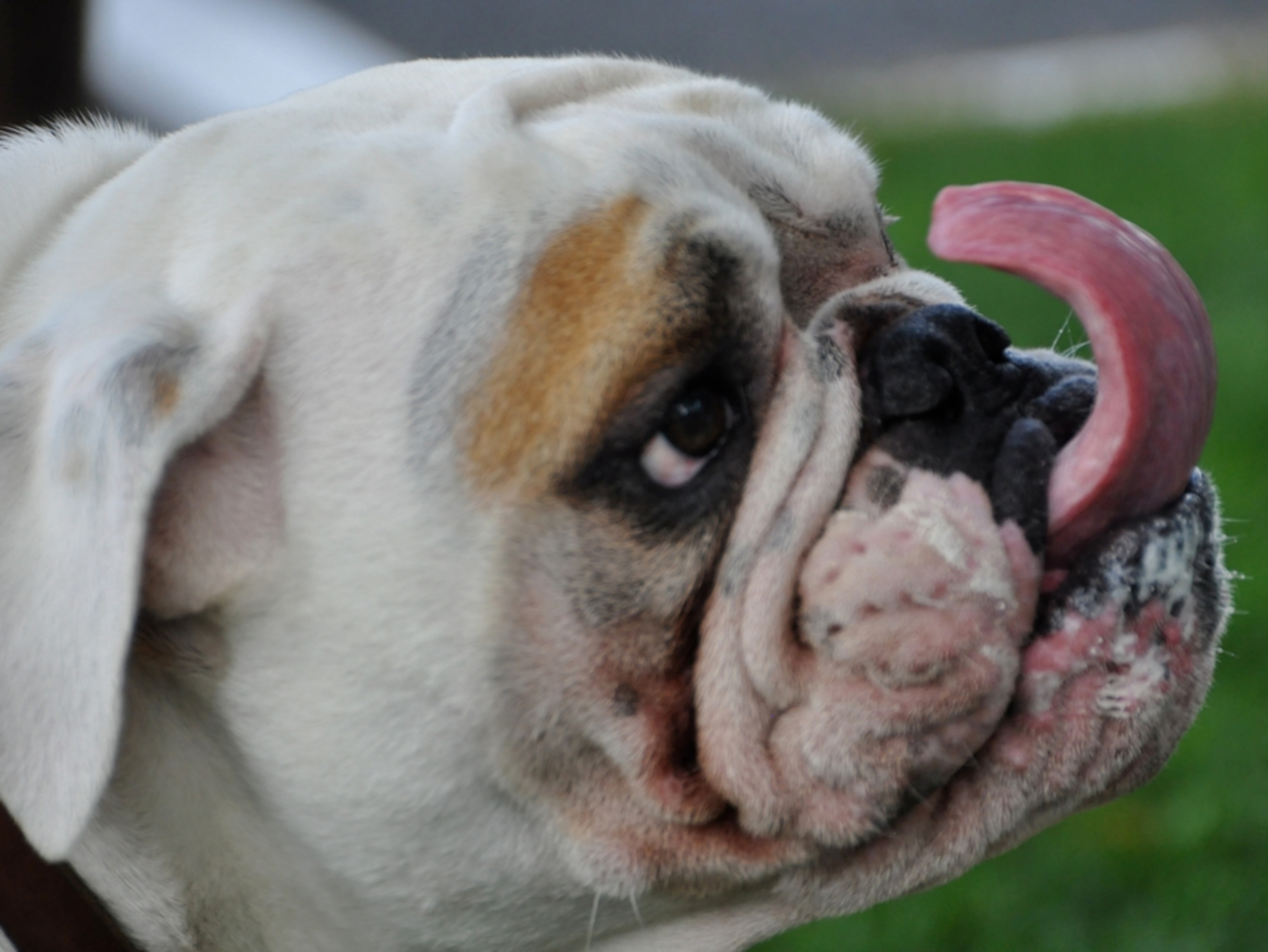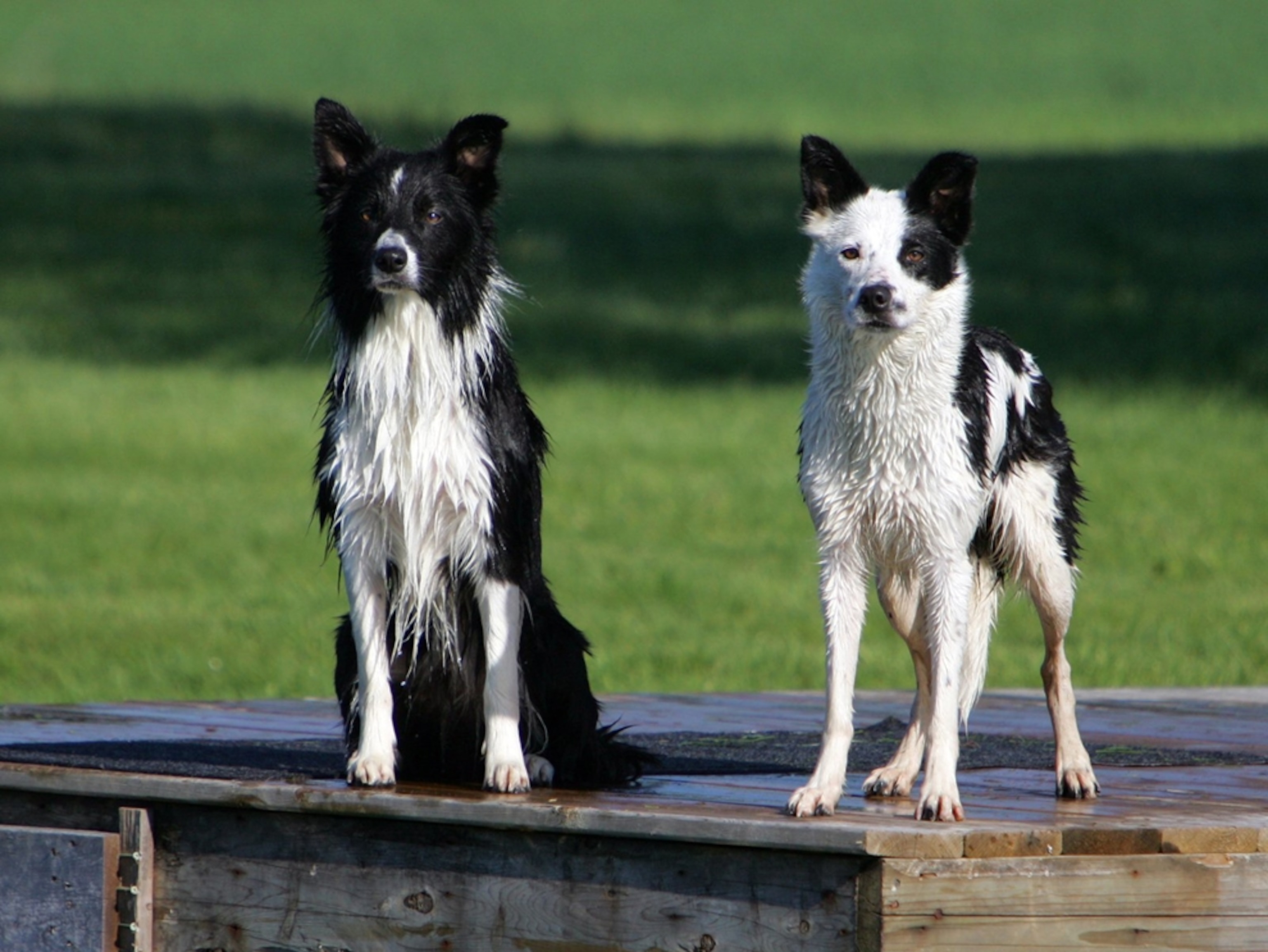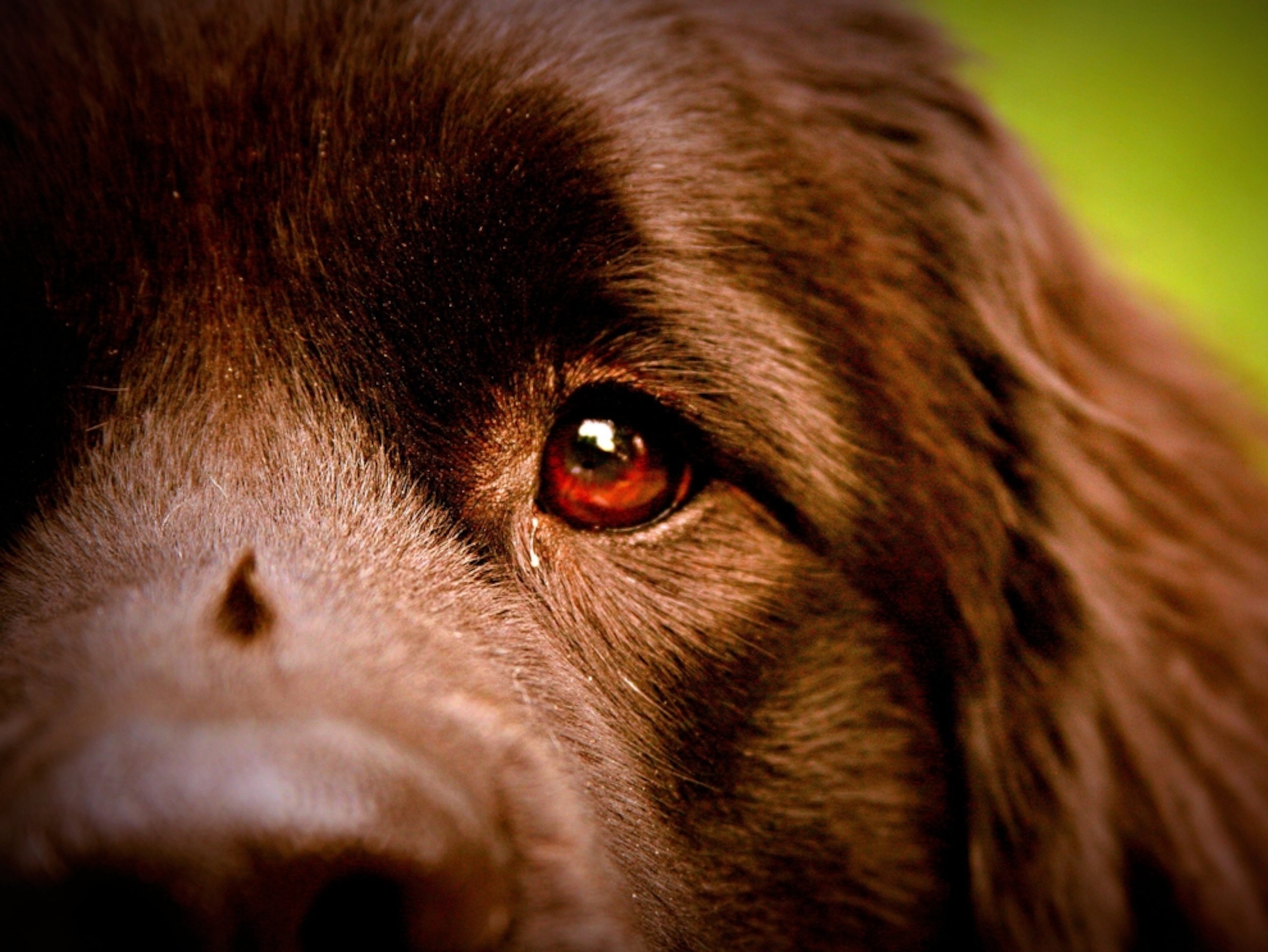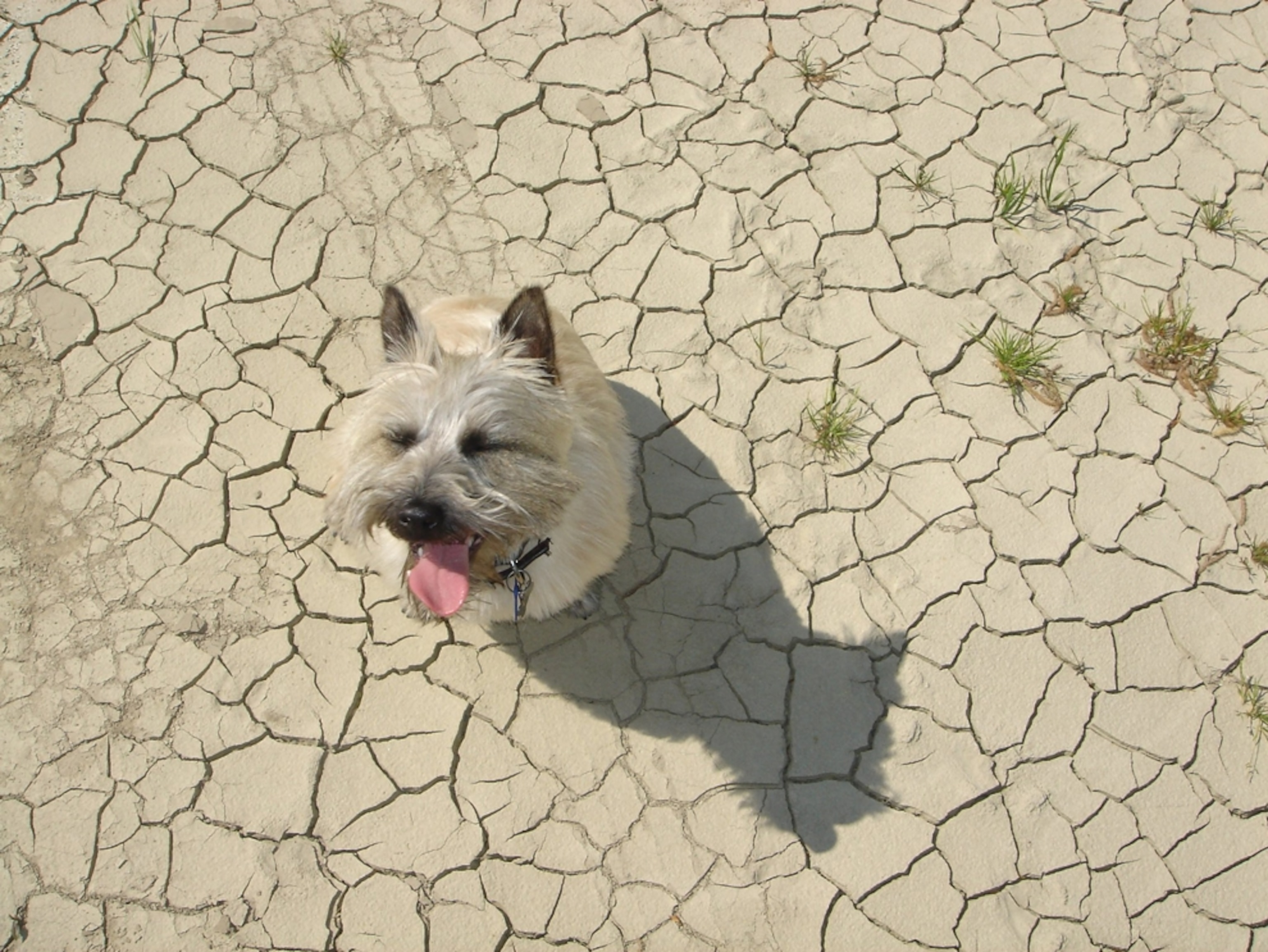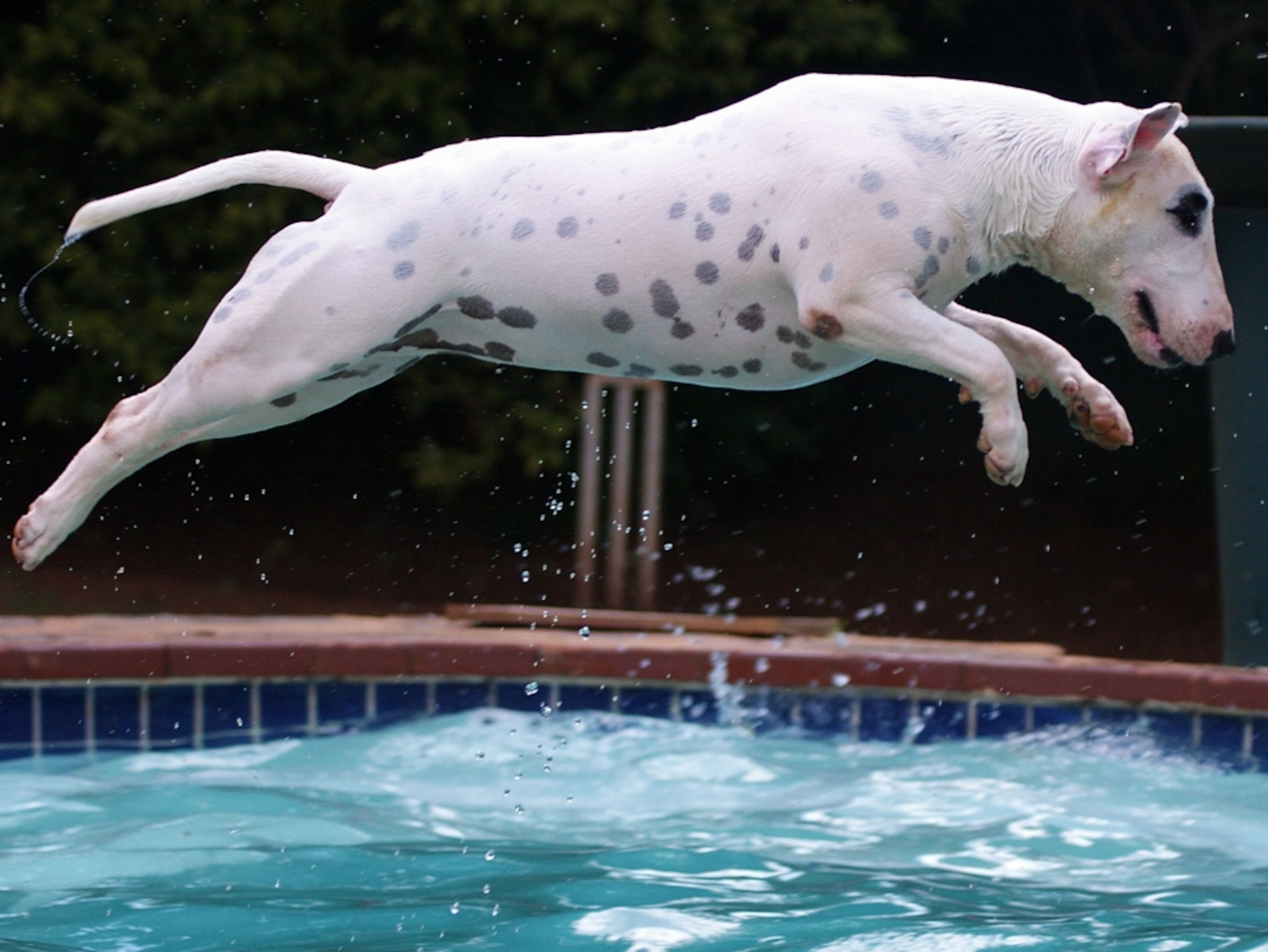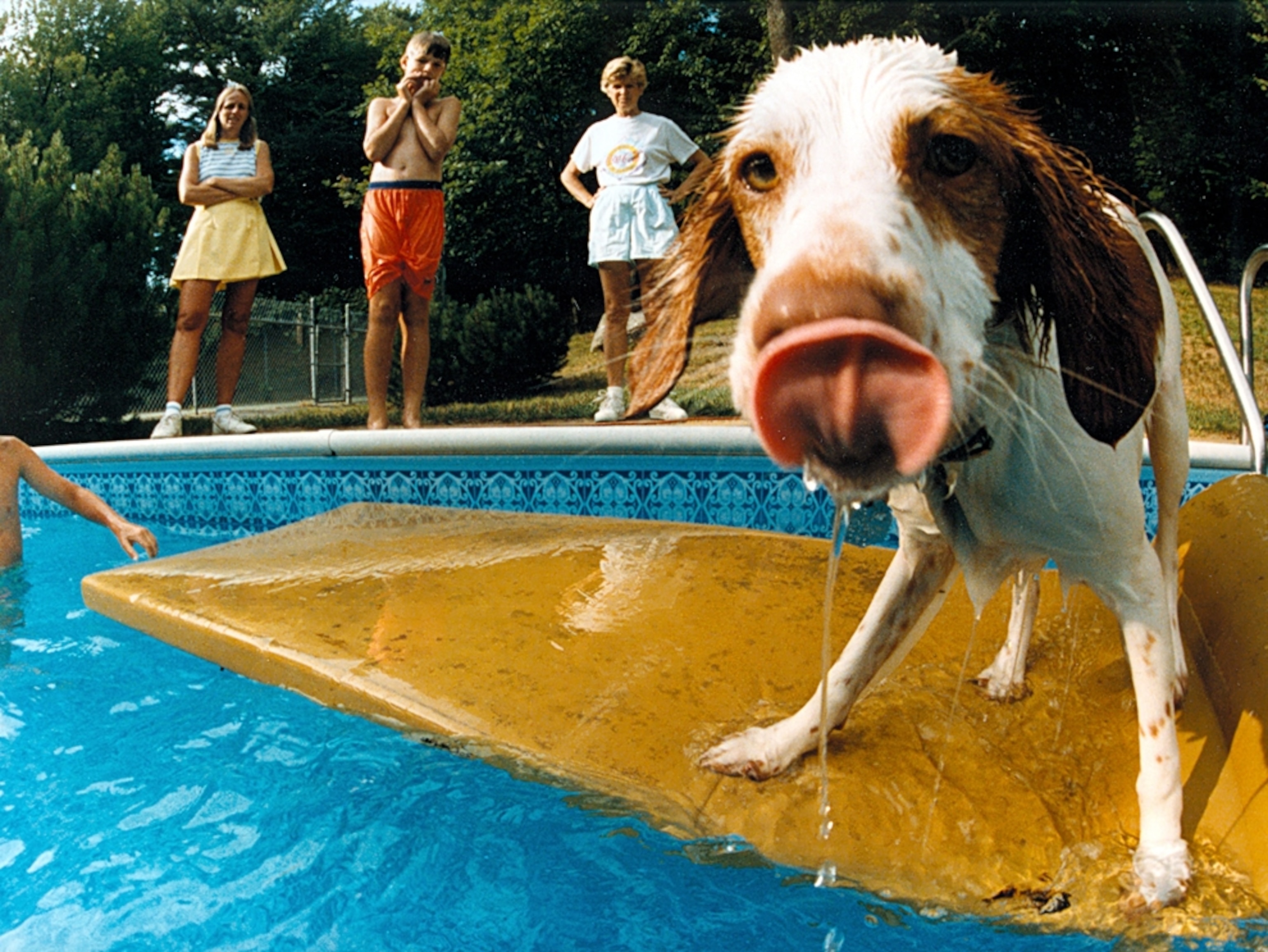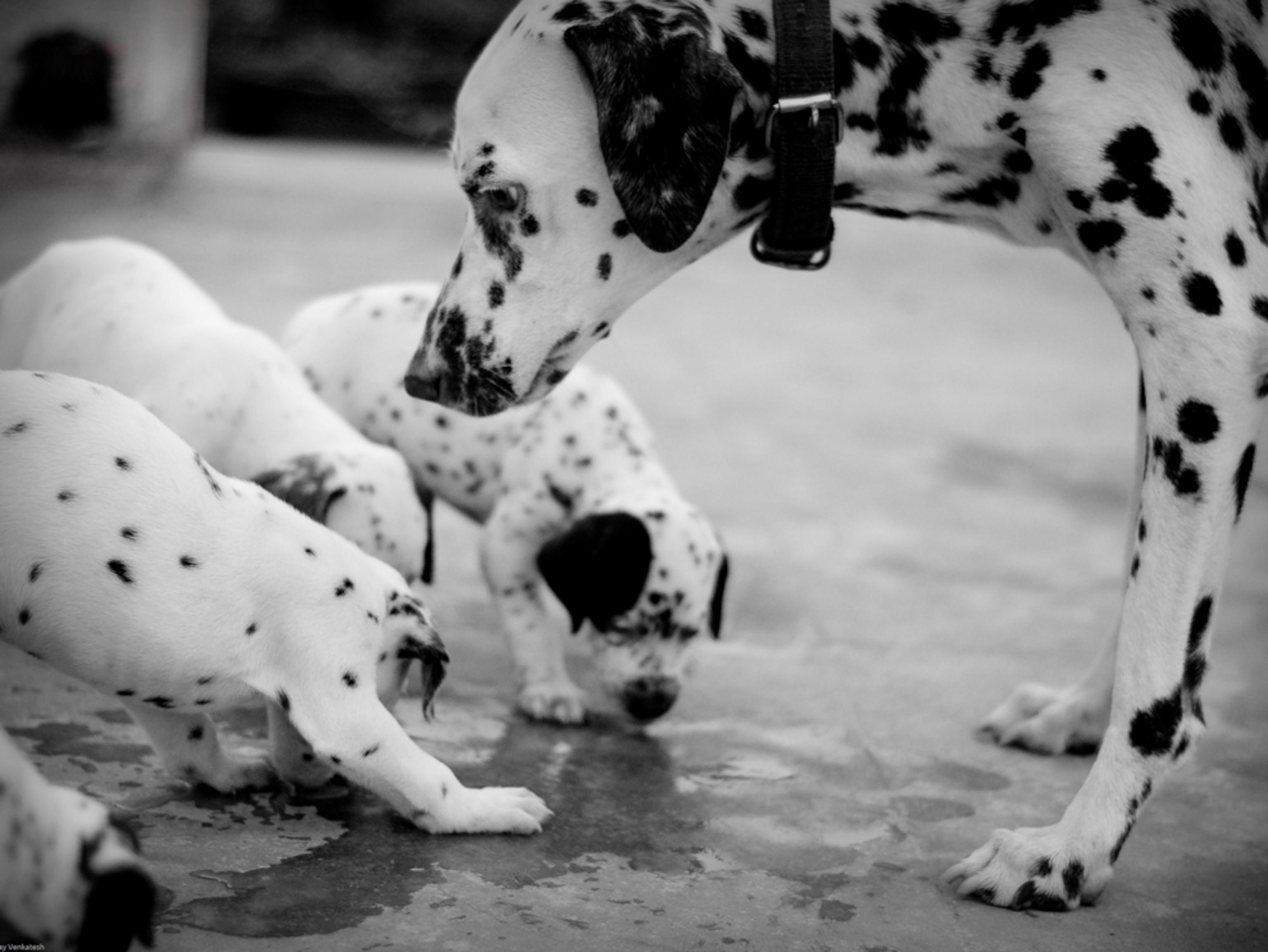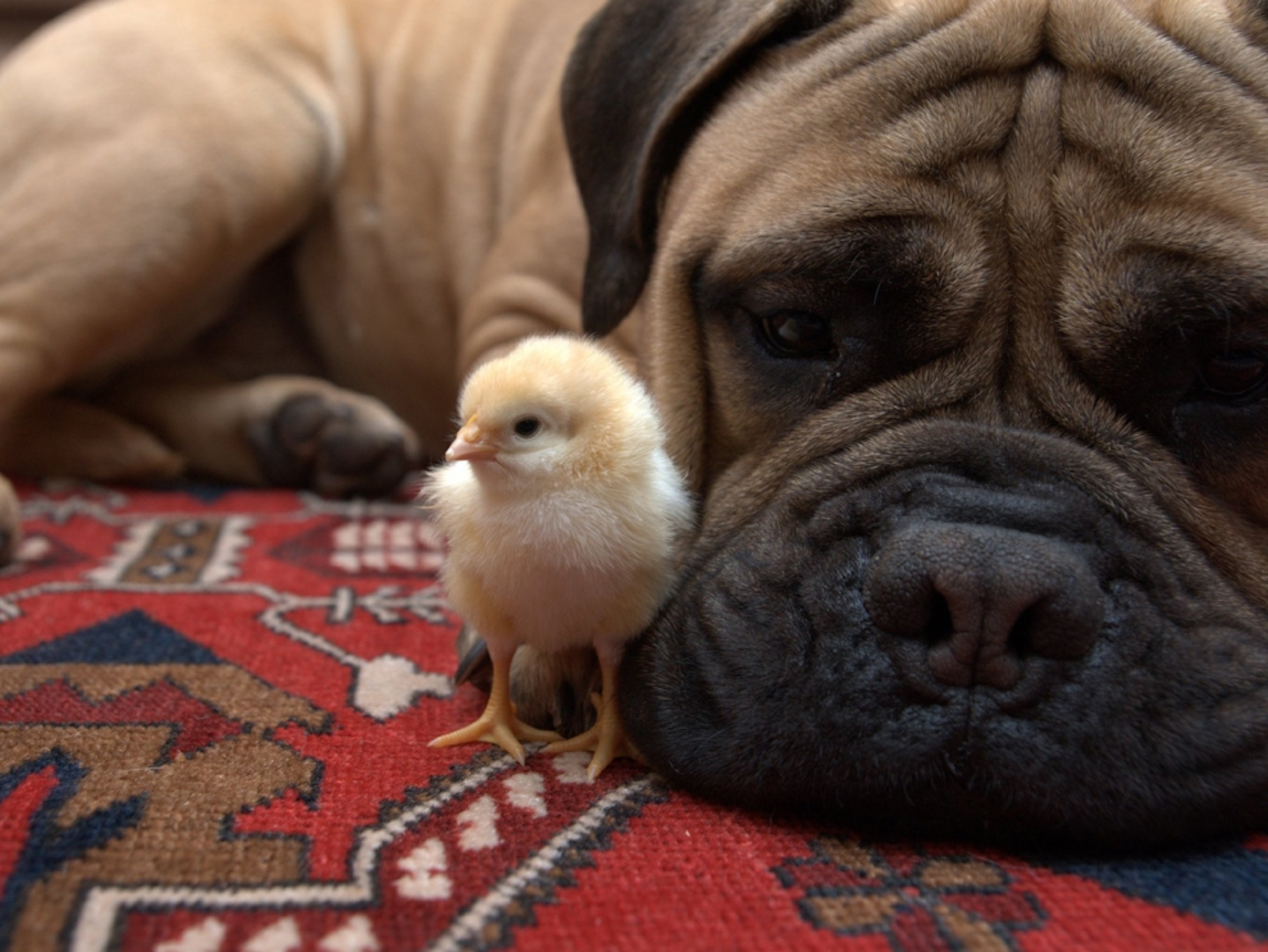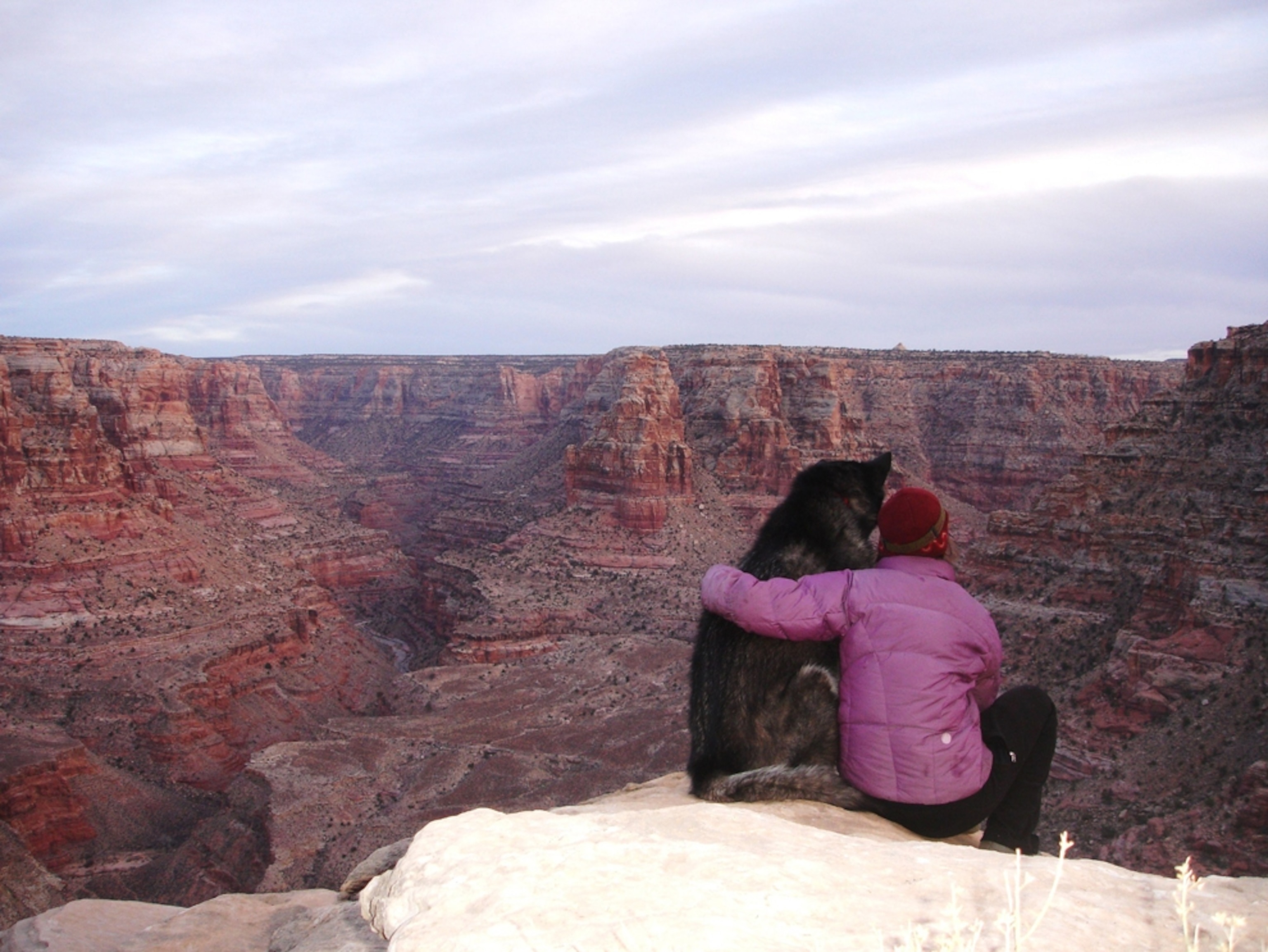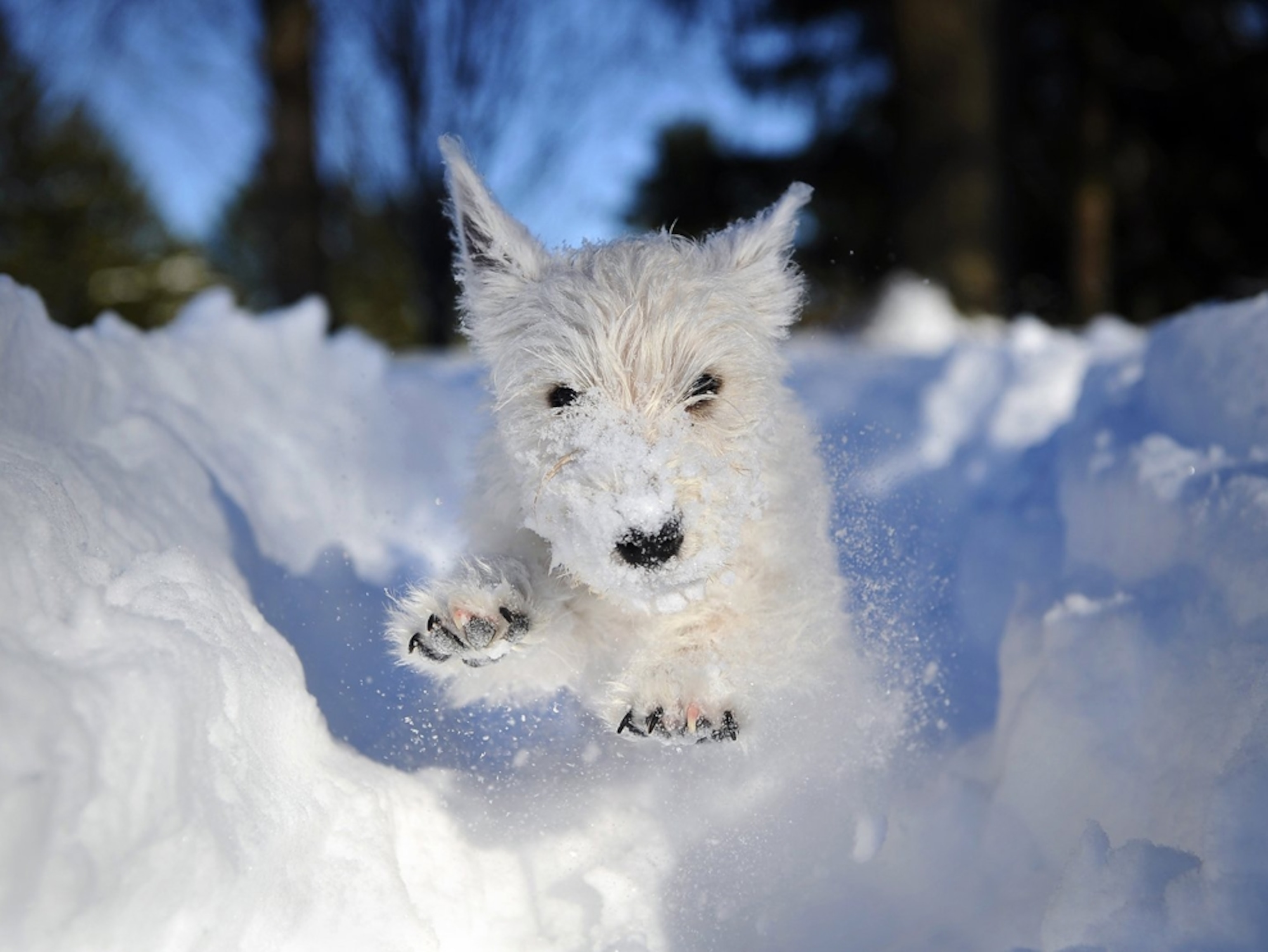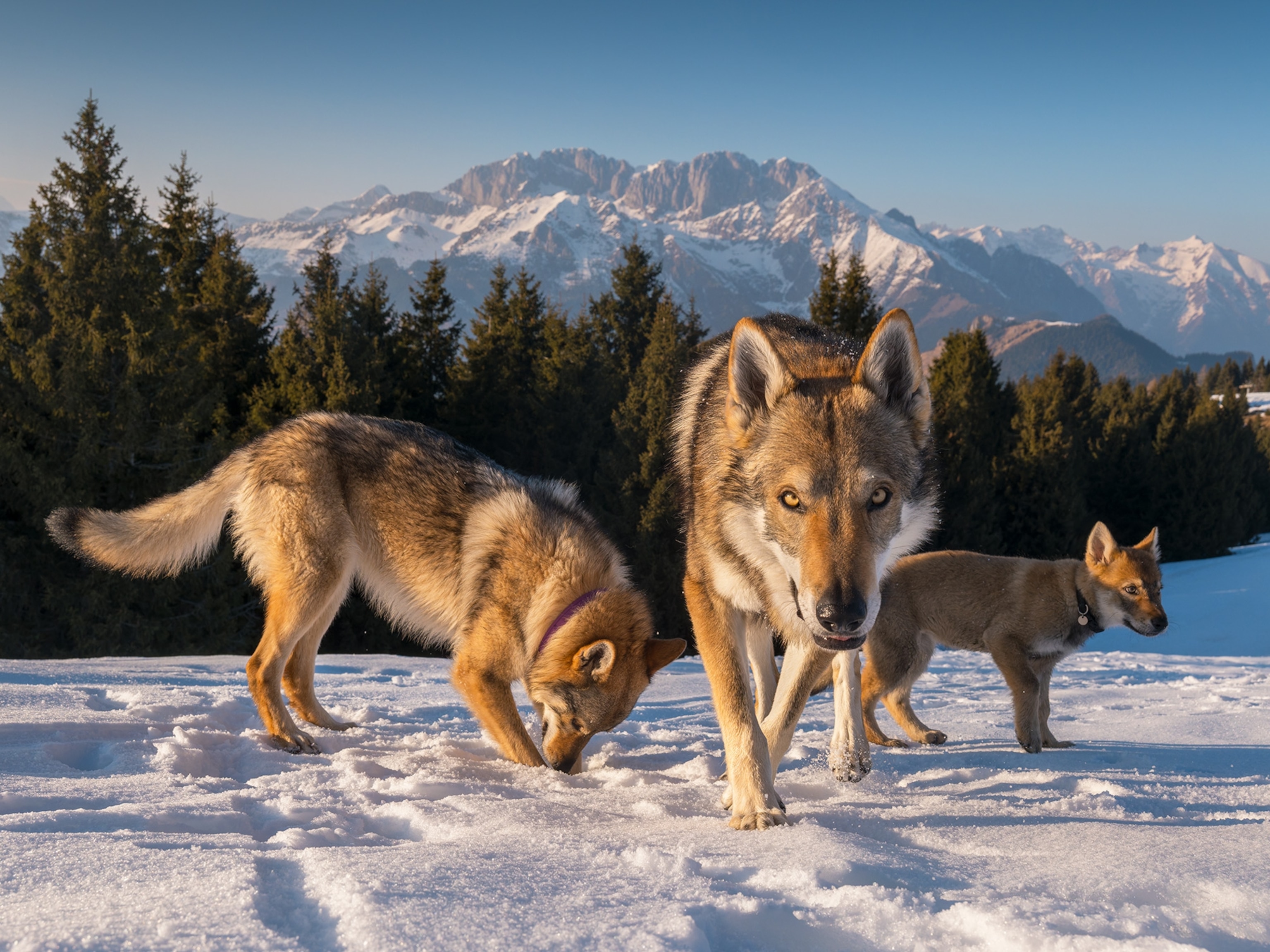
Dogs can be 'early-warning systems' for toxic chemical exposure at home
Dogs and people carry remarkably similar amounts of common household chemicals in their bodies, a possible boon for human health.
More than 10,000 years of domestication have made dogs strikingly similar to humans, from their ability to read facial our expressions to our closely related genomes. Now, a new study reveals that dogs and humans carry the same toxic chemicals in their bodies—a discovery that could possibly improve human health.
Many everyday items, from food packaging to cosmetics, contain harmful substances, such as pesticides; flame retardants; and phthalates, which are used to soften plastic. Long-term, chronic exposure to these three common chemical groups has been linked to diseases in people, including several types of cancer.
Since dogs are much like us, and share the same living space, scientists conducted the first investigation into how industrial chemicals impact humans and pet dogs living in the same household.
Using silicone wristbands and collars—a relatively new technology for detecting chemical exposure—the team found remarkable similarities between dogs and their owners’ chemical loads, according to the study, published recently in the journal Environmental Science and Technology.
These results are encouraging, says study leader Catherine Wise, because they show dogs can act as early-warning systems for human health, providing valuable clues about the detrimental effects of these exposures. (Read more about the chemicals inside our bodies.)
It often takes decades for chemical-related diseases to manifest in people, but the impact on pets may only take several years, says Wise, a Ph.D. candidate at North Carolina State University. So, for example, if scientists found that phthalates consistently led to cancer in dogs, they could offer guidance for people to be more vigilant in their exposure to plastics.
Wise adds that her research is particularly relevant now, due to the coronavirus pandemic.
“When most of us are stuck at home with our dogs a lot longer,” she says, the importance of “our shared environment has never been so great as it is today.”
Canine in the coal mine
That chemical exposures would affect our pets isn’t all that shocking, but what no one knew was how closely correlated these exposures were, nor how they played out over a pet’s life span, says study co-author Matthew Breen, an expert in canine cancer at North Carolina State.
“Dogs have very similar cancers, so would it not make sense that also the dogs could be in this situation because they also share the same environment?” Breen says. “A dog breathes the same air and drinks the same water, and when we throw a ball across the park, a dog runs across the same herbicide-treated grass.”
For the study, Breen and Wise mailed silicone wristbands and collar tags to 30 human-dog pairs in New Jersey and North Carolina, and asked the study subjects to wear them for five days in July 2018. The participants then mailed the items back to Wise and Breen, who soaked the wristbands and tags in a chemical solvent to extract the collected compounds.
The pollutant levels were alike in dogs and humans; for instance, the scientists found a type of polychlorinated biphenyl (PCB) in 87 percent of human wristbands and 97 percent of dog tags. These chemicals were once widely used as electronic coolant fluids and in a variety of industrial processes before the U.S. government banned their use in 1979. (Learn about PCB contamination in orcas.)
The silicone is so effective because it passively absorbs chemicals in a similar manner to human cells, giving scientists an idea not only of the chemicals a person contacts while they wear the bracelet, but also how much. Previously, scientists could only measure chemicals found in blood and urine, says Kim Anderson, an environmental toxicologist at Oregon State University, who developed the wristband technology.
“You and I can be exposed to the exact same thing at the exact same time and that will appear in our urine very differently,” Anderson says, making it hard to understand just how much of a chemical a person was exposed to.
But Anderson cautions that these types of studies can’t prove that a particular compound causes a specific outcome: They can only show associations.
Chemical connections
Such research builds on previous work in other animals, including horses and cats. In 2019, Anderson found an association between flame retardants and a disease in cats known as feline hyperthyroidism. That may be because cats like to rest on upholstered furniture, which often contains flame retardants.
Anderson has also adapted the silicone wristband into a necklace for horses, and published a study in April showing a strong link between sick foals and chemicals released by a nearby hydraulic fracturing operation in Pennsylvania.
Now that Wise and Breen have established this connection in dogs, they plan to use the same method to study how chemicals are connected to bladder cancer in dogs. Previous research has found links between a dog’s exposure to lawn herbicides and developing bladder cancer.
That is, once lab work starts up again. Right now, Wise is still at home chasing after her rescue dog, Simbaa. “She does keep me company and makes cameos in Zoom meetings, although she has to compete for the spotlight with our two cats, Loki and Nebula.”

